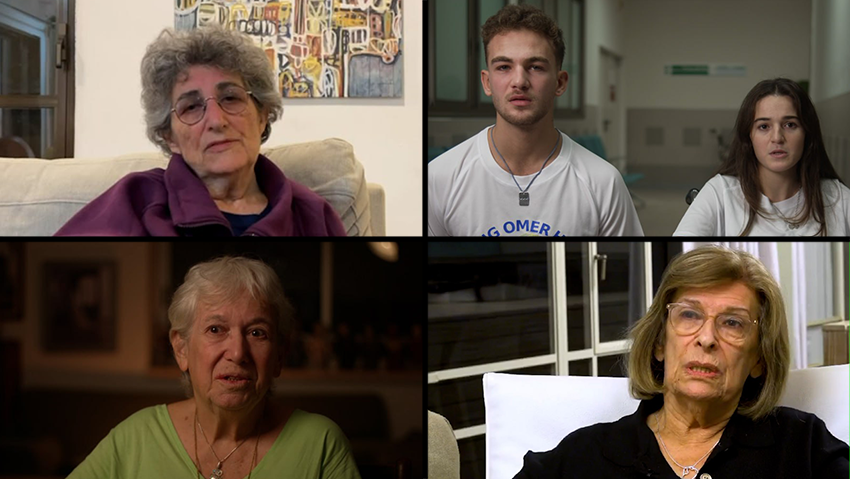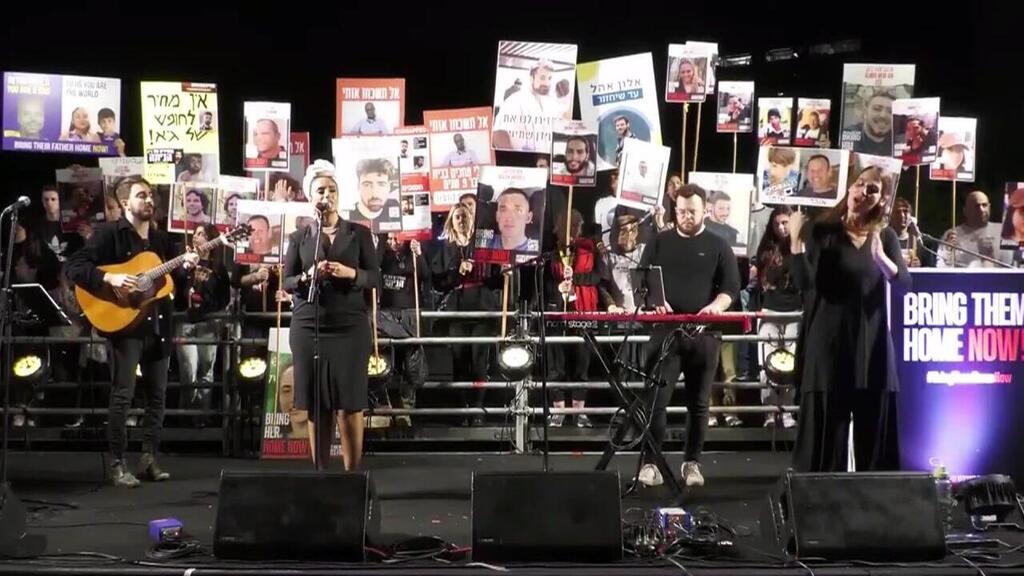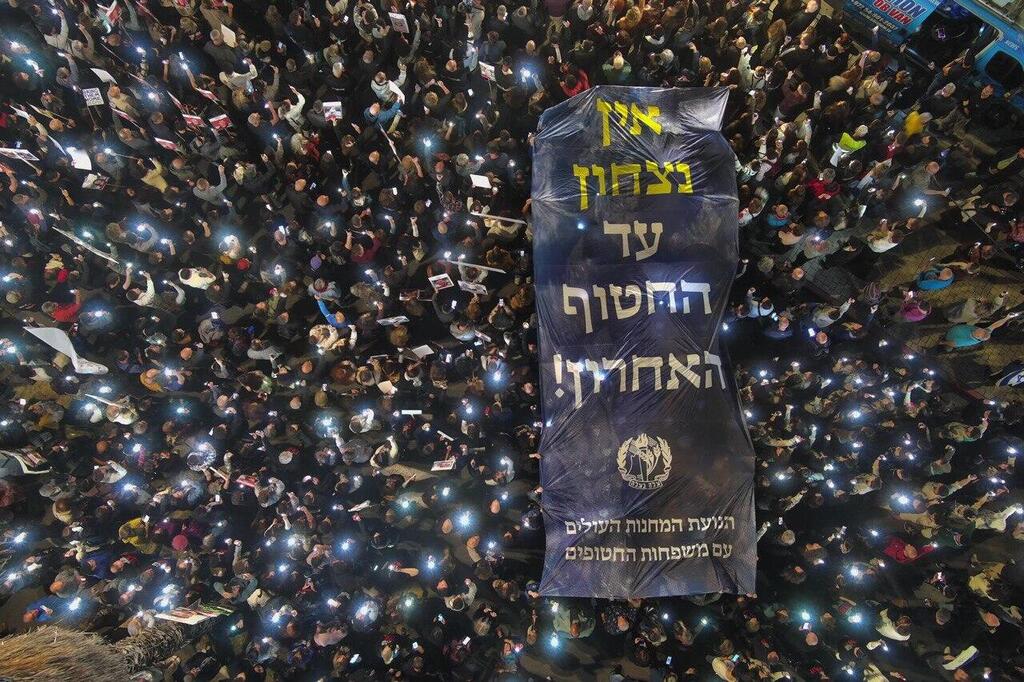Families of Israeli hostages marked 64 days since their loved ones were taken captive by Hamas in a gathering at Tel Aviv Museum Square, which is now called Hostages Square. Saturday night's rally took place as a protest against the world's silence in the face of testimonies about sexual assaults carried out by Hamas terrorists on October 7, and the grave concern for those still in held in Gaza, including 17 women. Some of the released hostages as part of a since-ended cease-fire deal with Hamas also spoke at the rally.
More stories:
"On the Saturday of October 7, they took me into the tunnel. At night, I use a CPAP machine, and I took it with me so I could sleep, and the terrorist who was there got angry at me and took the device away from me. It was a very difficult moment; I told him I needed the oxygen in the device and spoke to him in Arabic, and he understood, but didn't care," Margalit Moses, 77, from Kibbutz Nir Oz, recounted.
3 View gallery


Released Israeli hostages who spoke at the rally
(Photo: Abducted and Missing Families Forum)
"He took it and walked away. A doctor who saw me at first suggested I sit and rest my head against the wall so that I could breathe that way, but I couldn't breathe nor fall asleep. I didn't sleep for 49 days. There were mental and physical challenges, and every day that passed became more and more difficult. We must bring the people there back as soon as possible," she asserted.
Following Moses was the testimony of 72-year-old Adina Moshe. "I returned from Hamas captivity, but I left behind my good friends from Kibbutz Nir Oz who are still there, and there are quite a few of them, all very elderly and with severe underlying health conditions, lacking suitable medications," Moshe said.
"Food security there is getting worse, and eventually, we were left with only rice to eat. From the bottom of my heart, I ask you to please do everything for their release so that I can recover because until they return, my heart won’t be able to do the same. Please ensure that everyone is released first, bring them home, and then take military actions afterward," she said.
3 View gallery


Rally for the release of Israeli captives in Tel Aviv
(Photo: SRally for the release of Israeli captives in Tel Aviv atview)
Maya and Itay Regev, who returned in two separate groups in the deal with Hams, also spoke in a video filmed in advance of the rally. "I was in Hamas captivity for 54 days," Itay said. "The days there pass like an eternity, and are very hard. There was no one to talk to, whether it's hunger, longing, or the difficult mental state and the harsh conditions."
His sister Maya added: "Every day there is akin to hell, you feel tremendous fear and have no sleep at night. The longings are intense, and the lack of information is very frightening." Itay also brought up his friend Omer, who is still held captive. "Omer is still there, and I know what he’s going through. Omer and all of the hostages need to be brought back home now," he said.
Ophelia Roitman, 77, from Kibbutz Nir Oz, recalled the attack and her abduction on October 7. "They took me on a tractor; I was on the tractor’s floor. At home, they inflicted a large wound on my hand with a rifle butt. I was very scared. In the first two weeks, I thought I was going insane," she told the crowd.
“Due to my solitude, I nearly had no light to see with or food to eat. It reminded me of the Holocaust; I would eat bits of pita bread so that I would have food remaining for tomorrow. I know a lot of effort is being put into this matter, but there are still people eagerly waiting to be released. I ask you to make the utmost effort so that everyone can get out quickly,” she added.



